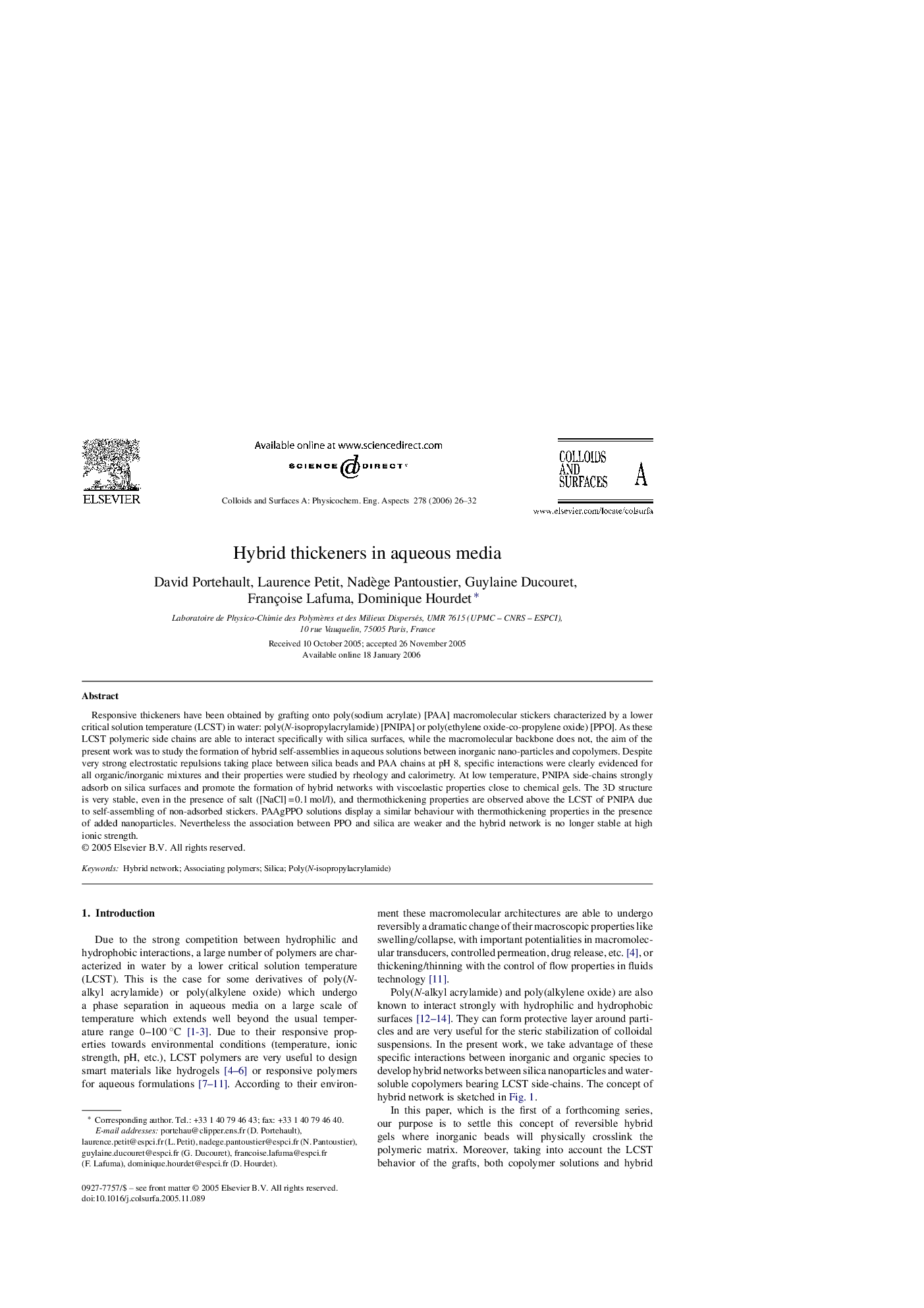| Article ID | Journal | Published Year | Pages | File Type |
|---|---|---|---|---|
| 598498 | Colloids and Surfaces A: Physicochemical and Engineering Aspects | 2006 | 7 Pages |
Responsive thickeners have been obtained by grafting onto poly(sodium acrylate) [PAA] macromolecular stickers characterized by a lower critical solution temperature (LCST) in water: poly(N-isopropylacrylamide) [PNIPA] or poly(ethylene oxide-co-propylene oxide) [PPO]. As these LCST polymeric side chains are able to interact specifically with silica surfaces, while the macromolecular backbone does not, the aim of the present work was to study the formation of hybrid self-assemblies in aqueous solutions between inorganic nano-particles and copolymers. Despite very strong electrostatic repulsions taking place between silica beads and PAA chains at pH 8, specific interactions were clearly evidenced for all organic/inorganic mixtures and their properties were studied by rheology and calorimetry. At low temperature, PNIPA side-chains strongly adsorb on silica surfaces and promote the formation of hybrid networks with viscoelastic properties close to chemical gels. The 3D structure is very stable, even in the presence of salt ([NaCl] = 0.1 mol/l), and thermothickening properties are observed above the LCST of PNIPA due to self-assembling of non-adsorbed stickers. PAAgPPO solutions display a similar behaviour with thermothickening properties in the presence of added nanoparticles. Nevertheless the association between PPO and silica are weaker and the hybrid network is no longer stable at high ionic strength.
